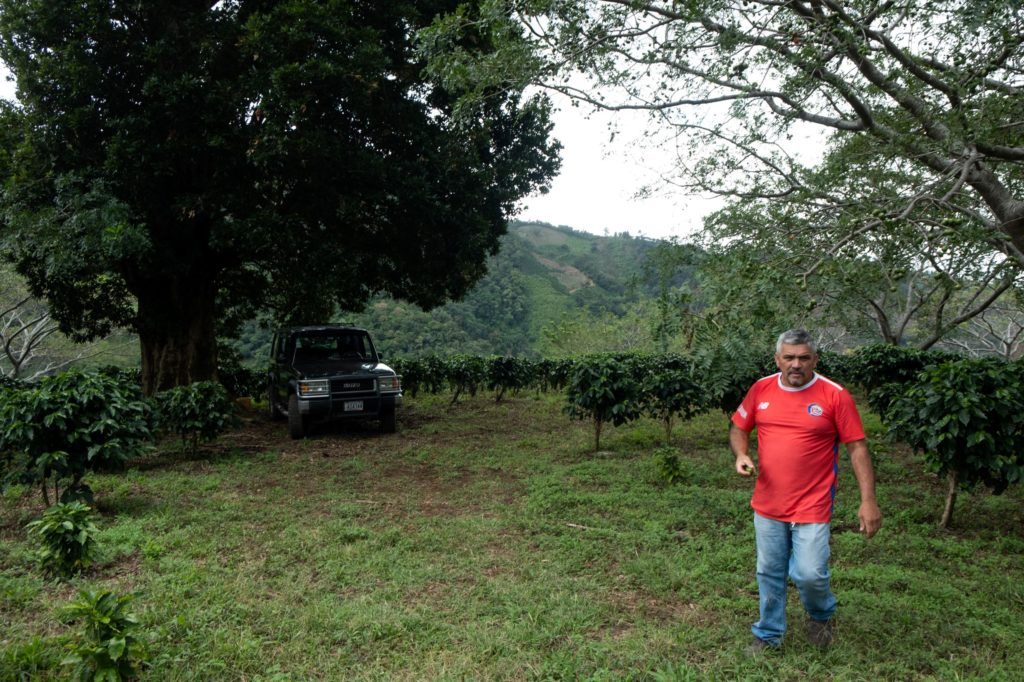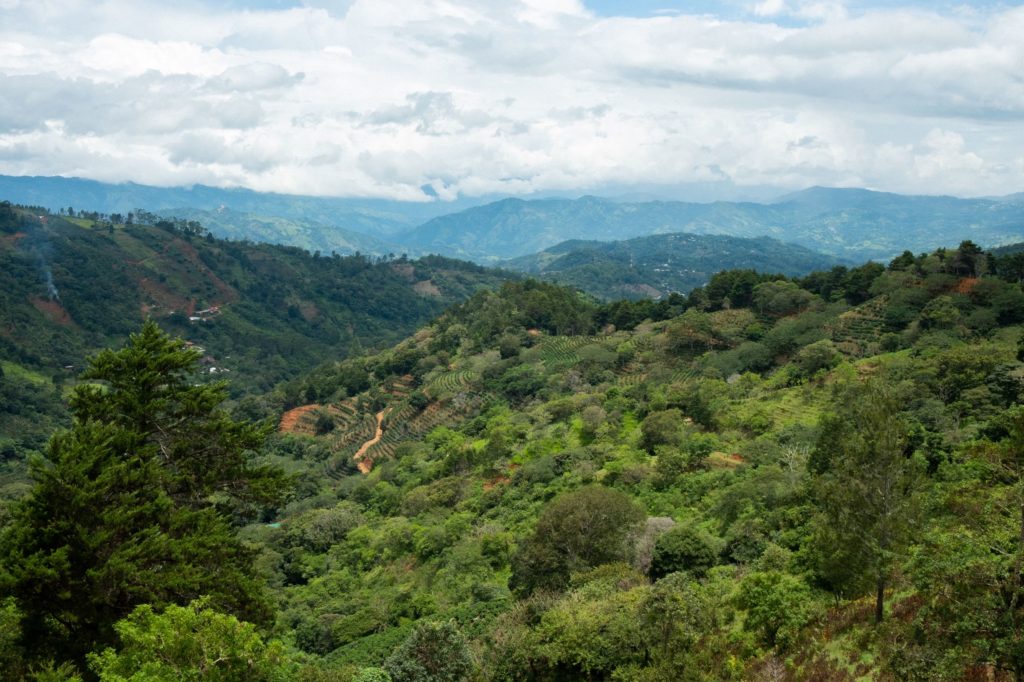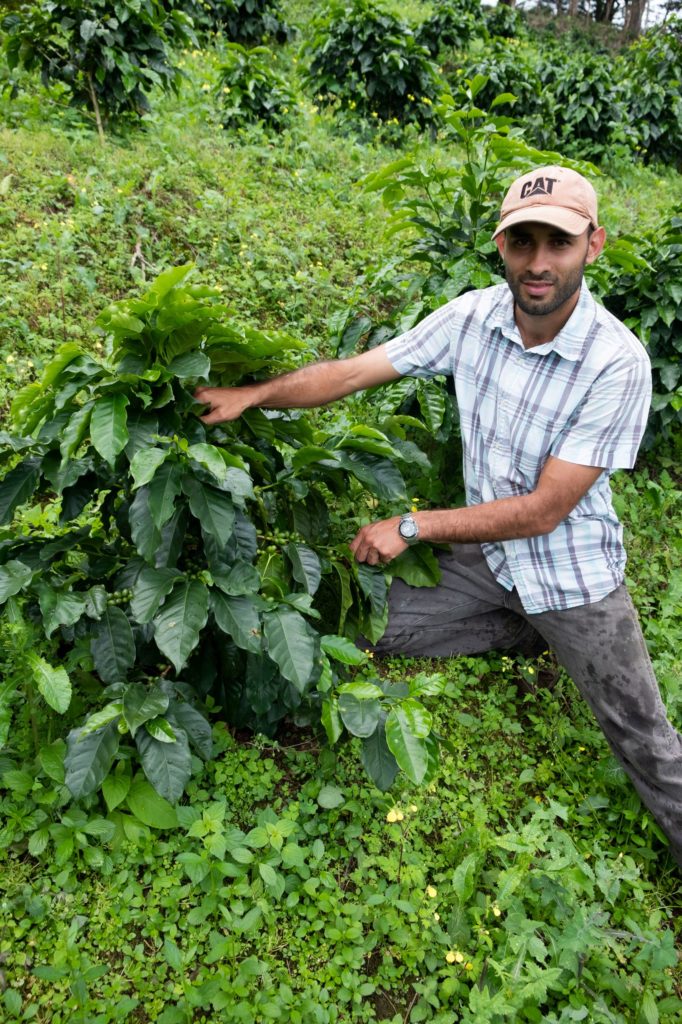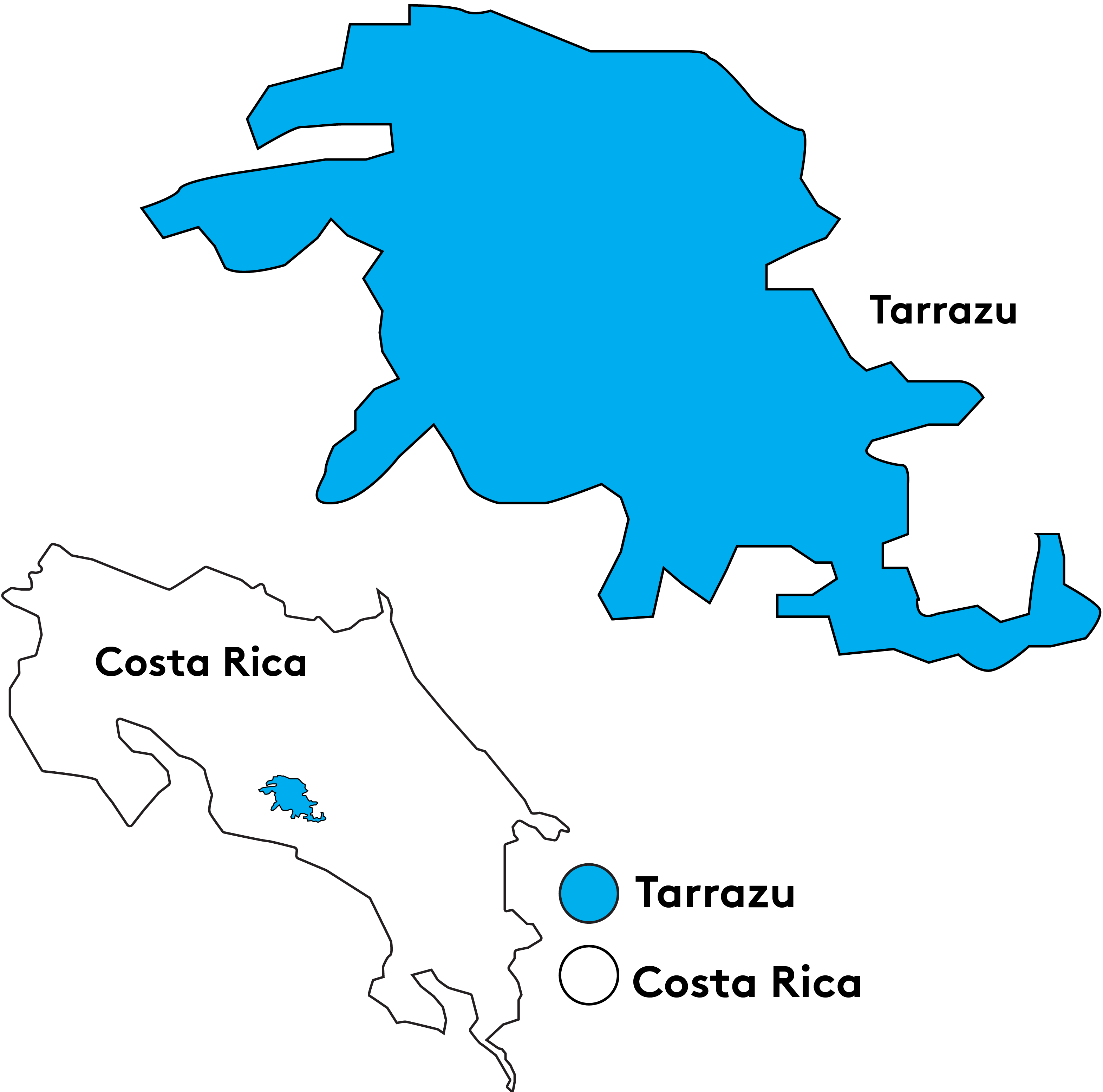The Ureña family is a well-known family in the town of Palmichal and are some of the premier coffee growers in the area. For many decades, the family has delivered coffee to the Palmichal mill. Different family members have managed the farm at different points in time, and today Paúl Cascante Ureña manages two plots: 6.5 hectares at 1450 meters above sea level and 4 hectares at 1650 meters. The coffee trees he tends were planted around the time he was born thirty years ago. He remembers growing up on the farm and wanting to continue to spend time there.
With a degree in agronomy, he can both spend time on the farm and make it a profitable business. His knowledge of coffee cultivation allows him to make decisions for the farm’s future, such as mixing his own fertilizer, selecting optimal varieties for planting, and promoting the farm’s coffee. The coffee is well pruned and nurtured, as evidenced by the dark green leaves and cherry development on the trees. The farm is only a 10 minute drive from the town of Palmichal, but the canopy of thick forest trees makes it feel worlds away. The view from the farm shows the surrounding hillsides planted with coffee.
Paúl enjoys his role as a coffee producer and recognizes that others play different roles in moving his coffee forward through the supply chain. When he delivers coffee to the mill, he is proud of the quality and sustainability of his product. The microlot program at Palmichal is designed for farmers with a promising terroir, quality varieties, and a passion for producing specialty coffee. The program has high standards for delivering only ripe cherries to the mill. Paúl employs women as pickers because he believes they have better scrutiny in harvesting. The Ureña’s coffee is Honey processed and Paúl has been an excellent participant in the program.
The Palmichal mill is a great example of larger mills becoming part of the solution for economic sustainability for smallholders. It takes a great investment to establish and run a micromill, and it is not feasible for all producers. The Palmichal mill handles large volumes of commercial coffee and chose to install a micromill within the larger conventional mill four years ago. It has a separate hopper, a Penagos demucilager, and a conveyor belt taking coffee to raised drying beds in order to not remove any more mucilage, which would be the case transporting beans using water. With this infrastructure and a team of agronomists to work with producers to analyze and improve quality, the Palmichal mill has opened the doors to the specialty market for dozens of producers.
In the Honey process, this lot of Catuai coffee cherries passes through the demucilager, where it was pulped and slightly washed but keeps most of its mucilage intact. The remaining sweet mucilage stays in contact with the bean during the drying process. It was dried on raised beds to a humidity level of about 16% then finished in the guardiola rotating mechanical dryer for 24–48 hours at a constant temperature no higher than 40 degrees C. The drying process takes a total of 7–10 days.










